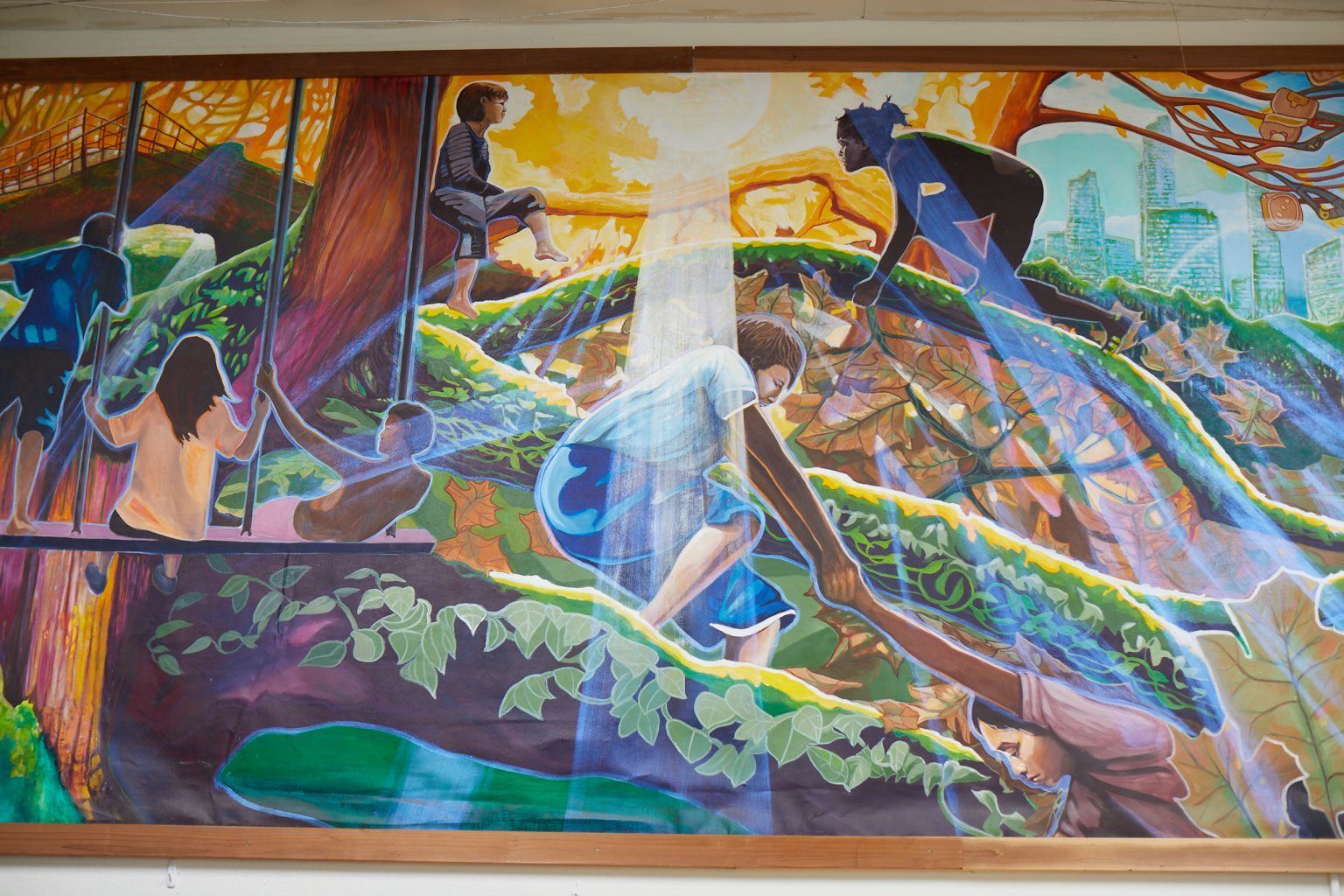Here’s what these D.C. teachers are bringing back from a school visit to L.A.
When teachers can talk about the challenges they face as well as the innovations they’ve developed, real learning happens. Here's what two schools on opposite sides of America have learned from each other.

When thinking of innovation in education, what’s the best way to share ideas? An email? A webinar? A PowerPoint? A video call? While all these approaches have their merits, at XQ, we think getting together and exchanging those ideas is one of the best ways to do it. Yes, it takes planning and travel and time, but there’s something extraordinary that comes with the spark of in-person communication. Somehow, when teachers have the chance to sit down and talk about the challenges they face as well as the innovations they’ve developed, real learning happens.
For XQ schools, these opportunities for real-time teacher professional development take shape in regular Communities of Practice and school exchanges. These get-togethers serve as opportunities to add new skills to their teaching toolboxes. Further, they provide a space where true fellowship can take place.
In this reflective piece, Stacy Kane, the Executive Director at Washington Leadership Academy, looks back on what she took away from their visit at Da Vinci RISE High School.
Days of learning
In January, a team from Washington Leadership Academy had the opportunity to visit Da Vinci RISE High School in Los Angeles for a couple of days of learning, information sharing, and fellowship. We had three major takeaways after the trip: 1) the visual system of credit tracking employed by RISE is much stronger for communicating progress to students and provides an opportunity for an upgraded model at WLA; 2) we can learn and grow from the incredible job RISE has done of developing mindsets in staff around trauma-informed practices; 3) this work is hard, and we’re in good company trying to do it.
A visual system of credit tracking
We were excited to see the competency-based system of crediting that RISE employs. Instead of earning credit hours via an archaic Carnegie-Unit-Based system of work based on hours, RISE applies a creative competency-based system whereby each course is broken down into a dozen sections. Students progress through the sections at their own pace. At the end of each section, the student takes a standardized assessment. Once the student passes the assessment, they can move onto the next section of the course. All of this data is tracked in a spreadsheet that students can access, and that’s color-coded. Students can see exactly how many credits they have and how many they still need to earn in an attractive and intuitive visual.
At WLA, our data systems have come a long way. We can now automatically generate a great deal of data related to crediting and promotional requirements. We can generate detailed reports of credits that students still need to earn before graduation. However, the RISE dashboard helped us realize that our system, while excellent from a data-tracking perspective, could be improved from a student-comprehension perspective. Upon return to WLA, we immediately began work on improving the user experience of our crediting trackers from a student perspective. We also scheduled and executed plans to re-educate our entire student and adult population about credit requirements and GPA calculations.
Developing trauma-informed best practices
Second, we were extremely impressed with the depth of understanding of trauma and trauma-informed practices evidenced by the RISE High staff. The team had us watch a video that they have clearly watched multiple times as a team, and all of us were in tears. The video showed the experience of foster care-related trauma from a child’s perspective and how the adults either help or hurt children in that position. We immediately knew we would show it to our team and facilitate more in-depth conversations about trauma-informed mindsets and perspectives.
Stronger, together
Finally, it was wonderful to visit RISE because it was a good reminder of the great company we are in when trying to do this incredibly hard work. While we don’t have all the answers, we do have the energy, drive, and hunger to make progress with and for our kids, whatever it takes.
For more on this topic, check out:
- High school redesign: How to apply the XQ school design principles
- The power of a strong school vision statement is limitless
- Bold is the goal in rethinking New York City high schools
Do you have a story to tell about classroom inspiration? We’d love to hear it! Become an XQ blogger today!









